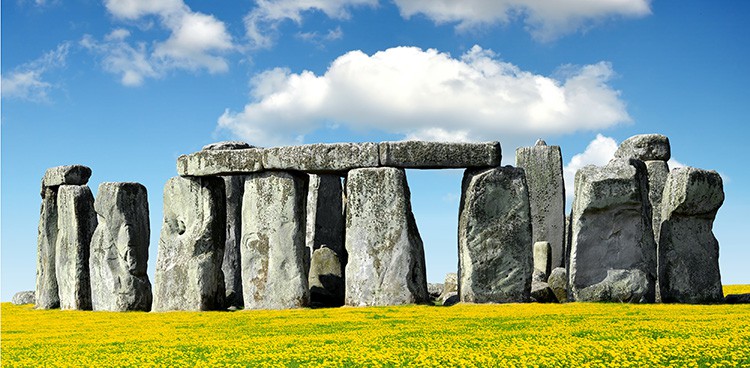
We know cheese is holey (I’m talking to you, Swiss), but turns out it’s actually holy.
Archeologists and researchers at the University of York and University College London have discovered that the builders of Stonehenge gave cheese as an offering to the gods during ancient worship.
Researchers studied the eating patterns of those who lived at Durrington Walls—a settlement where those who built Stonehenge 5,000 years ago likely lived. The dig team noticed that pots in the residential areas contained residue showing they were used to cook meats like pork and beef. Contrarily, the pot-ware in ceremonial spaces only contained remnants of dairy. The archaeologists think this evidence points to dairy being somewhat exclusive, only offered to the gods during ceremonies and consumed by an elite few.
“The special placing of milk pots at the larger ceremonial buildings reveals that certain products had a ritual significance beyond that of nutrition alone,” Mike Parker Pearson, professor at University College London and Director of the Feeding Stonehenge project, told The Telegraph.
Dairy is thought to symbolize purity because of the white, clean color of milk, which explains why it was so valued in ancient times. Even today, cheese is synonymous with value—“cheese” is a popular slang term for “money”. So while we may not be proffering up wedges and wheels to our deity of choice these days, we still have at least one thing in common with our Neolithic forebears: We think cheese is something special.
Interested in more of that old-time cheesy religion? We break the mystical and cheese in this post right here. More of a history buff? Click here for the story behind one of the oldest cheese strainers in the world.
Feature Photo Credit: Historical Monument Stonehenge…” by Jaroslava V | Shutterstock



